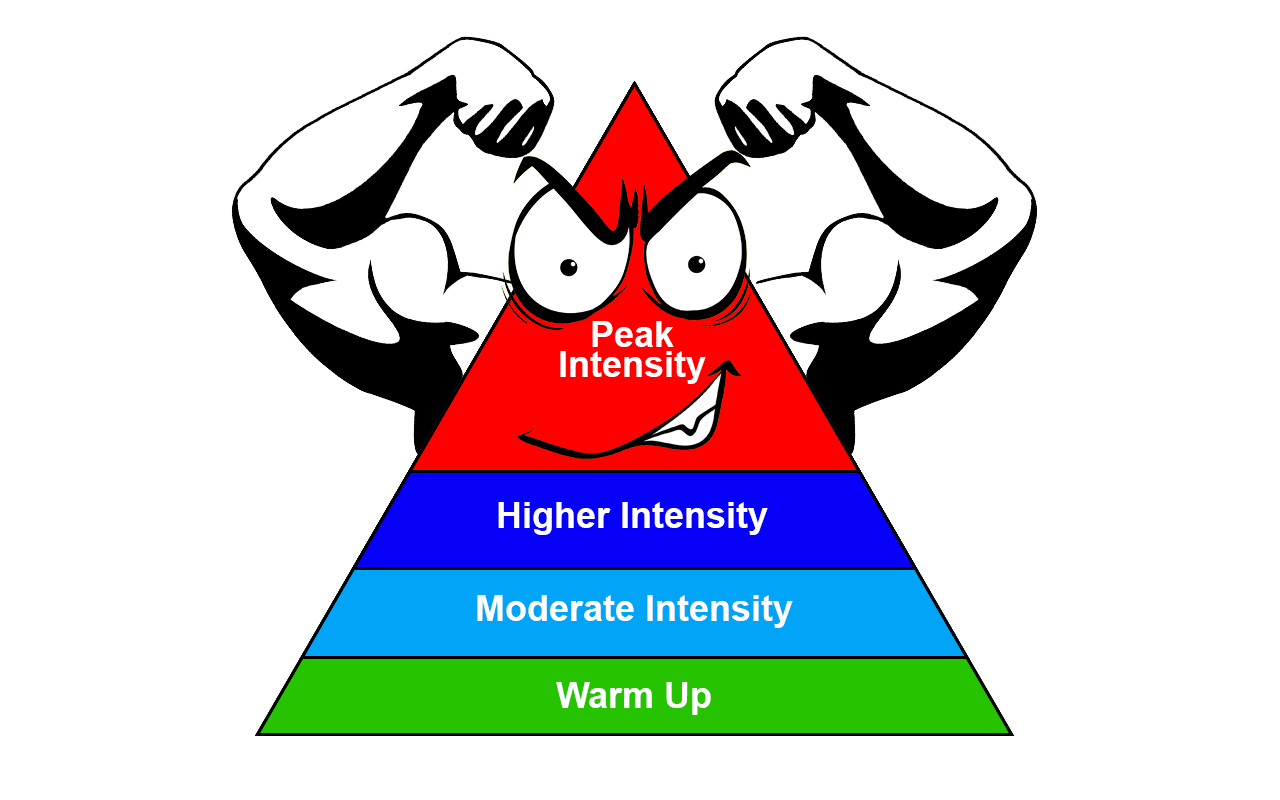The main idea of doing a warm up, is getting your cardio-vascular, central nervous system (CNS), as well as the skeletal musculature activated, before your weightlifting workout, in order to increase its efficiency.
Generally speaking, warming up refreshes the nerve paths along your central nervous system, but the most significant changes are in the vegetative nerve system- Your cardio-respiratory system is well activated. The body temperature goes up, and so, the heat-regulation mechanisms and sweating processes start.
Warming up leads to a positive change in the musculature, increasing its current contraction abilities, elasticity, blood flow, etc.
The activated cardio-vascular system, leads to an increased number of actively working capillaries.
Another plus that warming up gives you, is the decreased risk of injury, due to the fact your joints, ligaments and tendons are also prepared for a heavier workload, therefore, your warm up is kind of like a strategic shield against injuries.
To summarize it, we can say that the warm up of your CNS, vegetative nervous system and the musculature leads to an increased working capacity, working efficiency, and decreased risk of injury.
It is also very important to know that the muscle and vegetative functions are not activated simultaneously. They are mobilized in the following sequence- Pulse rate, heart beat volume, blood pressure, lung ventilation and oxygen consumption.
As we’ve mentioned, the human body doesn’t react adequately, to sudden changes, like a powerful muscle contraction under huge intensity.
In other words, if you want to quickly apply a huge training load, upon your musculature, your nervous system will not allow that to happen.
Hypertrophy is the most important goal, when it comes to building your body, and that’s mainly achieved by increasing your strength capabilities, but at the same time, what also plays a huge role, is adapting your nervous system to those certain loads.
Gradually increasing the weights, not only warms up the musculature, but also helps you achieve that proper mind-muscle connection.
We all know that the 75~85% intensity is the most optimal and effective when it comes to muscle hypertrophy, however, if you start your workout using that weight, the risk of injury is high, especially during the basic, compound movements.
Even if we do not ‘manage’ to injure ourselves, we wouldn’t have a good workout, simply because the small blood vessels we call capillaries, are not well activated and won’t allow the required amount of blood and nutrients, reach the working muscle fibers.
All of these problems are solved, by the gradual increase in intensity, using the principle we call “Pyramid”.
How To Apply The Pyramid Principle?
Below, we will present to you a classic pyramid scheme, that is used mainly for the first compound movement for every muscle group.
Set 1- 50-60% of 1RM – 15 repetitions
Set 2- 70% – 10 repetitions
Set 3- 75% – 7 repetitions
Set 4- 80% – 4 repetitions
Set 5- 85% – until failure
Now an important note here, is that we can ascend, as well as descend on the pyramid, meaning going down in weight, after reaching higher intensity levels.
If we want to descend on the pyramid, we have two options
1- During off-season: After reaching 85% for 5 reps, we do 2 sets of 6-8 repetitions, using 80% of 1rm and one set of 8-10 repetitions using 75%.
2- During the cutting phase: After reaching 85% for 5 reps, we follow up with 6 reps, using 80%, then 75/70 and 65% in 3 consecutive sets of 6 reps. The number of repetitions doesn’t change, due to the lower rest times between sets- 30-40 seconds.
Option number two gives room, for a higher density of the workout, while keeping a relatively high optimal intensity.
Staying Focused
Now, we can’t be 100% focused during each and every set, no matter how high your motivation levels are, and that’s a straight up fact. However, as we said, this is the exact principle, that would help you achieve the mind muscle connection needed, in order to have maximum muscle contraction and stay as focused as possible during the workout.
Below, we will show you another viable pyramid scheme, which you can use in your weightlifting workouts.
| Set | Intensity | Upper body | Lower body |
|---|---|---|---|
| 1 | 40% | 15 reps | 20 reps |
| 2 | 50% | 12 reps | 16 reps |
| 3 | 60% | 10 reps | 14 reps |
| 4 | 70% | 8 reps | 12 reps |
| 5 | 80% | 6-8 reps | 10 reps |
| 6 | 50% | 12 reps | 16 reps |
Summary
Not many training methods and principles have the same variety of intensity, volume and density of the workload, as the pyramid principle. From this, we can conclude that this principle mainly realizes the ideas behind the principles of progressive overload, de-adaptation, priority, flushing and contrast.
The pyramid method is mainly applied during the off-season, where we combine it with the methods of- Failure, cheating, forced reps, prolonged sets, constant tension, etc.

